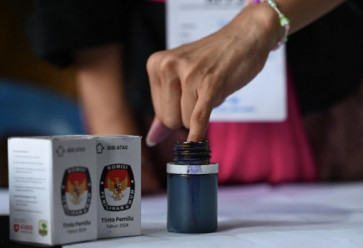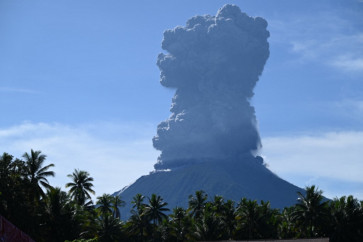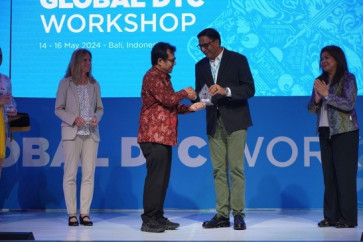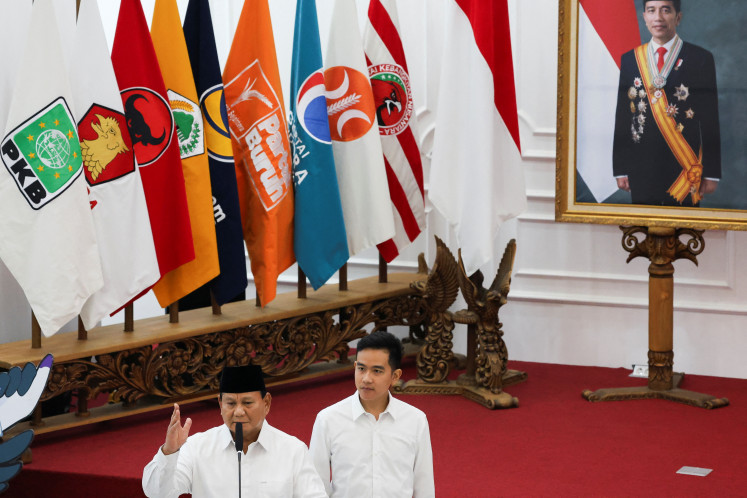Japan concerned about Chinese military buildup
While Japan is a major partner of both Indonesia and ASEAN, it is losing out to China’s growing influence
Change Size

W
em>While Japan is a major partner of both Indonesia and ASEAN, it is losing out to China’s growing influence. The Jakarta Post’s Desy Nurhayati spoke with Japan’s Foreign Ministry press secretary Satoru Satoh on the sidelines of the ASEAN meeting in Nusa Dua, Bali, on Friday. Below are excerpts from the interview:
Question: What are the latest developments in the Indonesia-Japan bilateral relations?
Answer: We are kind of natural allies, partners in many senses. Based on this background, the two countries have been developing very good cooperation. Recently, the ties got closer when President Yudhoyono visited Japan in June to show the Indonesian people’s solidarity for Japan by visiting tsunami-affected areas.
In the economic field, we have already signed the Economic Partnership Agreement. Our trade and investment is growing. From a regional viewpoint, Indonesia is a very important leader of ASEAN countries. We admire Indonesia’s chairmanship in ASEAN. We highly value Indonesia’s leadership in ASEAN meetings, and we would like to congratulate Indonesia over ASEAN and China successfully reaching an agreement on the guideline for the DOC [declaration on the conduct] on the South China Sea.
Can you update us on Japan’s latest projects in Indonesia?
There are many ongoing projects. Four projects will be signed between Foreign Minister Marty Natalegawa and Japan’s Foreign Minister Takeaki Matsumoto, originally on this occasion, but due to the tight schedule, the signing ceremony will be held next week. The four projects are a coal-fired plant in Indramayu, geothermal projects in five locations, the construction of a toll road in Bandung to ease traffic jams, and a project to avoid flooding on the Citarum River. These four projects have a total value of ¥74 billion [US$943.7 million], with low interest and long payment period concessional loan from Japan. Japan is committed to support development in Indonesia.
How do you see China’s rising influence in ASEAN?
China’s rise offers big challenges in many aspects and at the same time big chances for the entire world, including Japan and ASEAN. There are many challenges in political, economy, social, cultural, but at the same time, China is a big emerging market that provides big opportunities for other countries to share its dynamic growth.
The important thing is that we would like to make sure that China will become a responsible partner of the international community to fulfill a constructive role in the international arena. China can play a very constructive, important role by taking into account its ability and capacity. It is important to maintain dialogue and cooperation with China, so that China will understand the expectations of the international community in the sense that China will give constructive, responsible contribution to the world’s peace and security.
As for the military aspect, we are concerned about the continuous military buildup, the increasing military power and capability, which lacks transparency. We hope that China will be more transparent with its intentions and the capability of its military buildup. Recent Chinese maritime active exercises have caused concern in the region, so we hope that China responds to such concerns of the international community by improving its military capability and activity in a more transparent manner. China itself says that it will be rising peacefully. We welcome the peaceful rise of China, but it grows so quickly and dramatically that it requires some adjustment to the surrounding environment by showing accountability and transparency.
How does Japan’s view the resumption of the Six-Party Talks on the North Korea nuclear issue?
The development of nuclear [weaponry] is a destabilizing factor in the region. We have deep concerns about this. Recent uranium enrichment activities is a clear violation of the UN Security Council resolution and the joint statement of the Six-Party Talks. We think that it is necessary for North Korea to fulfill its commitment and obligation, including demilitarization. In regard to the Six-Party Talks, we consider that it is a very important and effective framework. However, dialogue for the sake of dialogue is inappropriate. For the resumption of the Six-Party Talks, it is important that North Korea demonstrates its willingness to seriously implement commitment in the joint statement by taking concrete actions. Dialogue is not enough, we want to see more concrete progress.
How does the meeting between North and South Korea support the resumption of the Six-Party Talks?
Last December, in Washington, foreign ministers of Japan, the US and South Korea met each other, and since then we have had a very close consultation. North Korea and South Korea dialogue is very important before continuing the Six-Party Talks. It’s the common understanding among the three countries. For South Korea, it is a welcome sign, a very important step forward. By taking into account the recent incidents, we have to respect South Korea’s sentiments before the Six-Party Talks. That’s why we respect South Korea engaging with North Korea first, and then other Six-Party Talks members can consider the next step on the resumption of the talks.
What about the US proposal on the South China Sea?
I don’t know which US proposal is going to be made on this occasion, but the South China Sea is a very important issue of concern for the international community. East Asia, including Japan, connected with the international community through South China Sea. In case of Japan, more than 80 percent of crude oil from the Middle East to Japan goes through the South China Sea. Therefore, peace and stability in the area directly affect Japanese interests. We are very keen on this issue and we welcome the agreement between China and ASEAN on the guidelines to implement the DOC. We expect all parties to fully implement the DOC guidelines until they agree on the legally binding code of conduct. In doing so, differences must be resolved in accordance to international laws.









